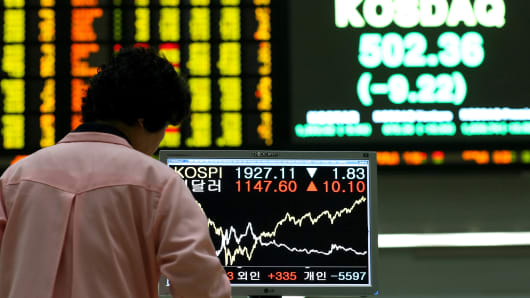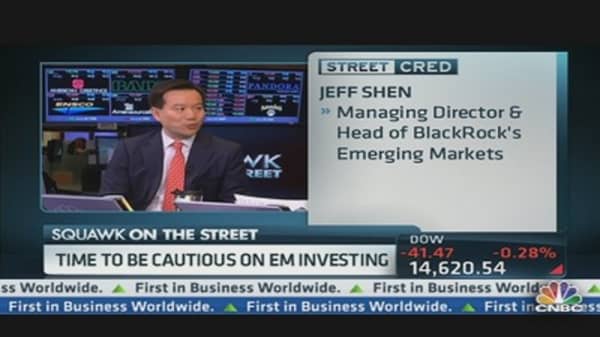South Korea exchange-traded equities saw an inflow of $1.1 billion, second only to Mexico, with the largest portion—$874 million—going to Samsung KODEX Leverage ETF Equity-Derivatives fund.
"If you are looking into countries in emerging markets generally, some local markets have performed not as well as others," research analyst Alex Ashby of Global X said. "It may be one of the reasons that performance is lagging in the broader-based funds." Global X is a New York-based ETF manager which launched more than 40 funds.
During the first quarter, iShares MSCI Emerging Markets Index lost more than 2.5 percent this year, with countries such as Brazil and China weighing down its performance. iShares MSCI Brazil Capped Index Fund lost almost 5 percent, while MSCI China Source ETF declined 6.5 percent this year.
Ashby expects better results in South East Asia, where Global X Asean 40 ETF has gained more than 3 percent this year. The fund focuses on Indonesia, Malaysia, Singapore, the Philippines, and Thailand. It has seen inflow of $12 million so far this year to its total of $50 million in assets.
Emerging market funds from the Asia-Pacific region as a whole have attracted nearly five times more cash than Latin American funds in March, BlackRock said in a note.
With both the S&P 500 and Dow Jones Industrial Average reaching record highs, investors poured money back into U.S. equities, said BlackRock's Kittsley.
He sees the reduction in inflows into emerging markets as a temporary pause.
"Emerging markets have been relatively flat," Kittsley said. "But we certainly have a very positive outlook on emerging markets long term, both under the lens of exchange-traded funds, as well as the underlying markets."





